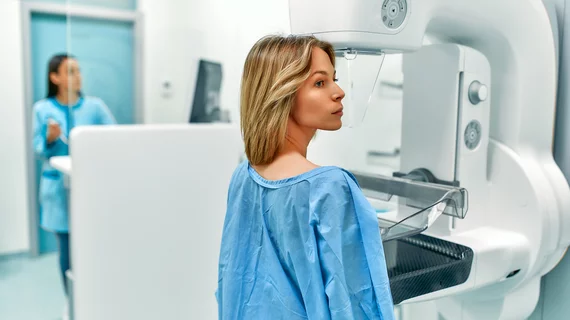Massive $100M mammography screening trial is a ‘waste,’ radiologist claims
A $100 million breast cancer screening trial touted as the largest ever undertaken in the U.S. is a “waste” and should be abandoned, one well-known radiologist said in an editorial published this month.
The Tomosynthesis Mammographic Imaging Screening Trial was launched in 2017 to compare digital breast tomosynthesis with legacy 2D mammography screening. While TMIST recently surpassed the 50,000-participant mark, Daniel Kopans, MD, with Harvard Medical School, believes the trial may already be antiquated, he wrote in the October issue of Clinical Imaging.
“The money being spent on TMIST should be used to advance our ability to detect breast cancers earlier and save more lives,” Kopans added. “It should not be used for looking backward in an effort to reduce access to screening.”
In his reasoning, the Boston radiologist claims that when the trial is finished, it’s “almost certain” digital breast tomosynthesis devices will have replaced all full-field digital mammography systems in the U.S.
Furthermore, he argues, the funds put toward TMIST should have been invested in testing MRI-driven breast screening 20 years ago. A randomized, controlled trial assessing this modality, he added, would be “far more valuable” than TMIST.
The National Cancer Institute, which is backing the trial, maintains the study is crucial.
"TMIST is looking to clarify the best screening for women based on the science and is not solely about access. We are seeking to determine which technology is better and [are] providing access to the trial across the country in diverse practices and populations," the NCI said in an email exchange with Medscape Medical News.
The Harvard radiologists expressed a handful of other objections to the study’s design, including gripes with its surrogate endpoint of reducing the rate of advanced cancers and by not including women ages 40-44.
Read the full piece here (behind paywall).

